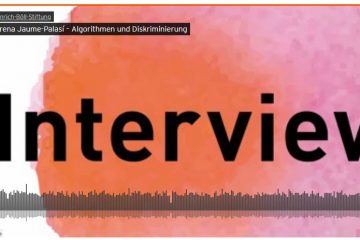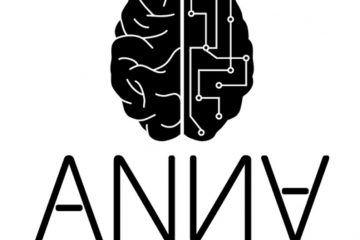Database - Search Results
Tools & Resources
Algorithmen und Diskriminierung
Heinrich Böll Stiftung (2021): Algorithmen und Diskriminierung. Interview mit Lorena Jaume-Palasí (Audio, 19:54 Min.), Berlin. As part of the “Böll.Interview” podcast series, Lorena Jaume-Palasí, founder …
As part of the "Böll.Interview" podcast series, Lorena Jaume-Palasí, founder of the Ethical Tech Society, answered questions from the Böll Foundation on the topic of artificial intelligence, algorithms and discrimination. Jaume-Palasí describes artificial intelligence and algorithmic decision-making systems as collective technologies to which we would apply the wrong, namely individualistic, standards. These technologies are based on mathematical or statistical methods that are designed to form classifications and analyze collectives, but not individuals. The individualistic idea that people can be analyzed using these methods is problematic. It is only ever about group formations, such as the suburban mother with a migrant background who is single and always borrows certain cars. In this respect, algorithms can only discriminate because there will always be people who do not fit into any classification.
Im Rahmen der Podcast-Reihe „Böll.Interview“ stellte sich Lorena Jaume-Palasí, Gründerin der Ethical Tech Society, den Fragen der Böll Stiftung zu dem Thema Künstliche Intelligenz, Algorithmen und Diskriminierung. Jaume-Palasí beschreibt Künstliche Intelligenz und algorithmische Entscheidungssysteme als kollektive Technologien, an die wir die falschen, nämlich individualistische Maßstäbe anlegen würden. Diese Technologien beruhen auf mathematischen oder statistischen Methoden, die dafür ausgelegt seien, Klassifikationen zu bilden und Kollektive zu analysieren, aber nicht einzelne Individuen. Die individualistische Vorstellung, dass Menschen mit diesen Methoden analysiert werden können, sei problematisch. Es gehe immer nur um Gruppenbildungen, etwa die Vorstadtmutter mit Migrationshintergrund, die Single ist und immer bestimmte Autos ausleiht. Insoweit können Algorithmen nicht anders, als zu diskriminieren, weil es immer Menschen geben werde, die in keine Klassifikation passen würden.
Tools & Resources
Anna – Das vernetzte Leben
iRights e. V. (ab 2019 iRights.Lab). (2017): Anna – Das vernetzte Leben. Berlin. Anna is 35. After a long day at work, she likes to …
Anna is 35. After a long day at work, she likes to look for distractions on the Internet, scroll through her messenger messages and social media feeds or order a new book online. She can see what is happening on her screen. Meanwhile, intelligent systems are working in the background, learning from Anna's data tracks. Sometimes that's pretty useful in everyday life. On other days, this has astonishing consequences.
Das Projekt geht der Frage nach, was Künstliche Intelligenz, Algorithmen und Big Data für den Alltag der Individuen bedeutet. Die Funktionsweise dieser digitalen Technologien bleibt aber meist eine Black Box. Es fehlen Informationen, um mündige Entscheidungen treffen zu können. Das Angebot greift Chancen und Risiken dieser Technologien auf und verdeutlicht, inwiefern jede und jeder Einzelne davon betroffen ist. Dazu werden die Alltags-Themen „Wohnen“, „Einkaufen“, „Gesundheit“ und „soziales Leben“ vorgestellt.
Tools & Resources
Big Data Analysis
Kemmann, Oliver (2018): Big Data Analysis. Oliver Kemmann im Gespräch mit Klaus Schlitt, Geschäftsführer der Big Data Analysis GmbH. In: Das digitale Sofa. Der Kemweb …
In this podcast, physicist Klaus Schmitt provides insights into typical applications of Big Data analysis that are understandable even to non-mathematicians, and uses a car rental company as an example to explain how Big Data-supported purchasing and controlling prediction works.
In dem Podcast gibt der Physiker Klaus Schmitt auch für Nicht-Mathematiker verständliche Einblicke in typische Anwendungsbeispiele der Big Data Analyse und erklärt anhand einer Autovermietung, wie Big Data-gestützte Einkaufs- und Controlling Prediction funktioniert.
Search matches: 3
New search


